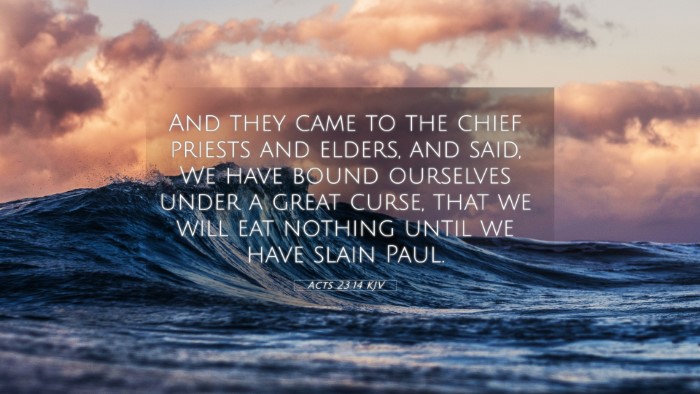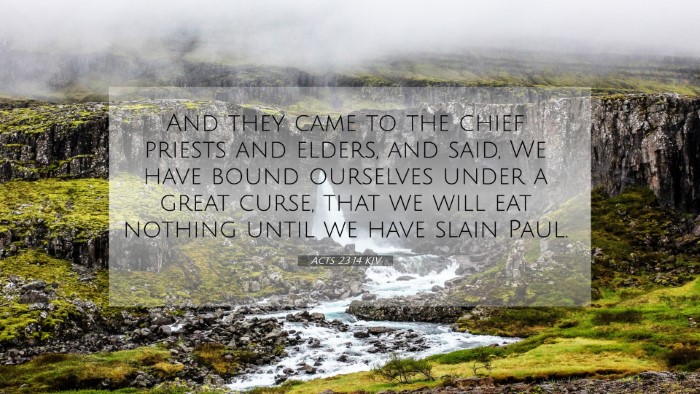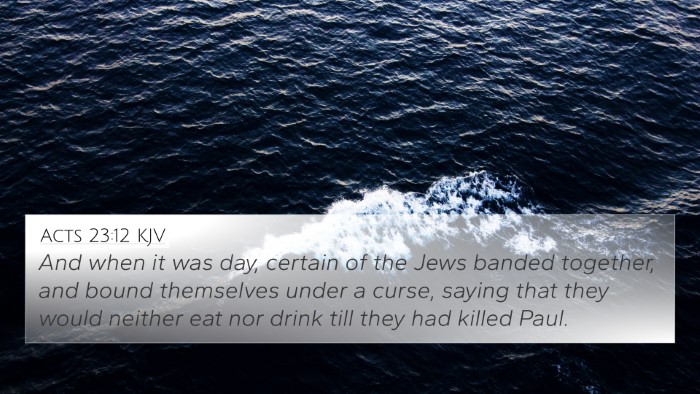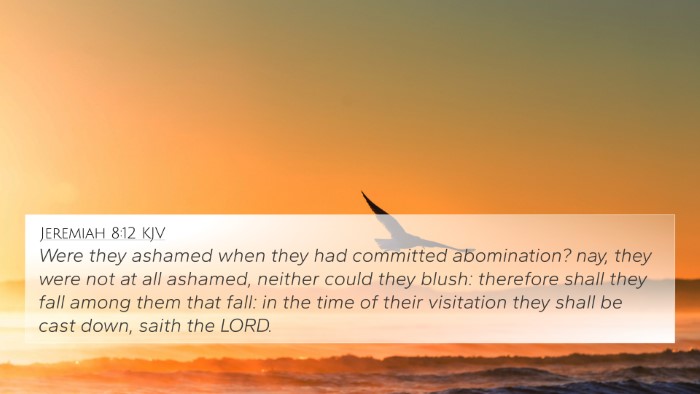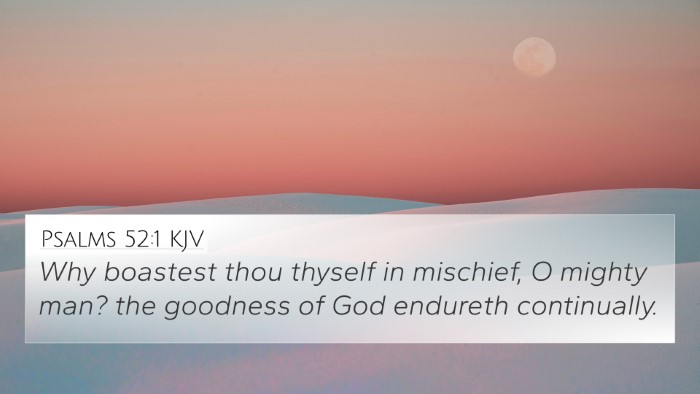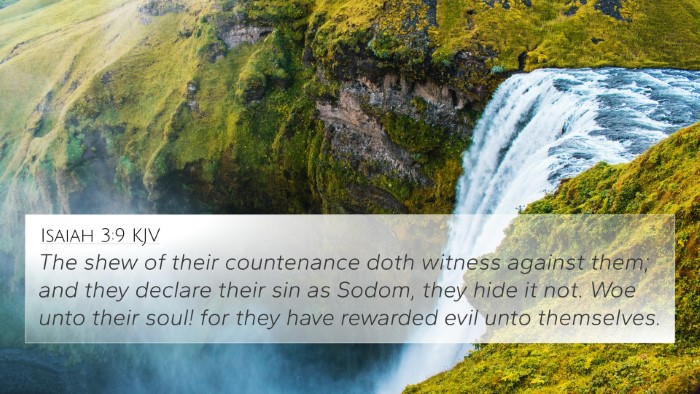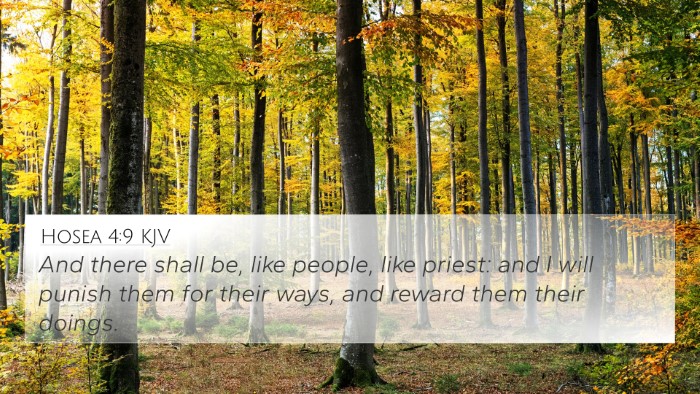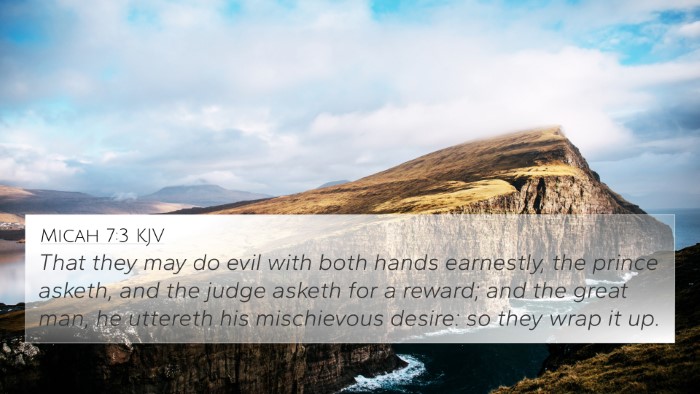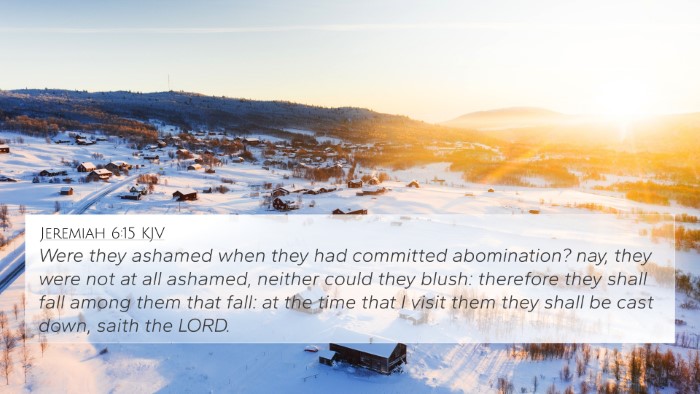Understanding Acts 23:14
Acts 23:14 states:
"And they came to the chief priests and elders, and said, We have bound ourselves under a great curse, that we will eat nothing until we have slain Paul."
This verse highlights a pivotal moment in the early church history, demonstrating the intensity of opposition faced by the Apostle Paul. Analyzing this verse brings forth themes of conspiracy, dedication to a cause, and the lengths some would go to in opposition to God's servants.
Contextual Background
In the context of Acts 23, Paul is in Jerusalem, facing hostility from the Jews. The Sanhedrin's leaders and other factions want to eliminate him due to his teachings that threaten their authority and the Jewish tradition. This verse reflects a specific plot by a group of men who take a vow not to eat until they have killed Paul, showcasing their determination and their malice.
Commentary Insights
Matthew Henry's Commentary
Henry emphasizes the degree of the Jews' animosity toward Paul, portraying their resolution as a gross violation of both religious and moral law. He notes the seriousness of their vow, which underscores their commitment to silencing the apostolic mission and illustrates the spiritual blindness present in their hearts. This situation serves to reveal the larger conflict between the early church and the Jewish leadership.
Albert Barnes' Notes
Barnes points out that religious zeal can blind people to righteousness and highlight the destructive nature of fanaticism. He addresses how this vow, rooted in a desire to see Paul killed, is not only a minor plot but rather reveals a larger issue of intolerance within religious circles. He suggests we view this plot as a parallel to other Scriptural accounts of individuals driven by fervent beliefs to action, often with severe consequences.
Adam Clarke's Commentary
Clarke elaborates that the curse taken by these men reflects a deep commitment to their cause, akin to other historical vows made in ancient Israel. He draws connections between this event and similar biblical narratives where individuals made grave oaths. Clarke asserts this vow should incite reflection on the true nature of commitment to faith—whether it leads one to righteousness or towards deeper sin.
Thematic Connections
The conspirators' actions serve to illustrate broader biblical themes including:
- The struggle against evil: The early church often faced persecution, and this is one more moment captured in Acts illustrating such trials.
- The importance of faith amidst opposition: Paul remained steadfast in his faith despite the increasing danger, which encourages believers to persist in their convictions.
- The role of divine providence: God's protection over Paul becomes evident as these plots unfold, suggesting that divine purposes often operate despite human schemes.
Related Bible Cross-References
- Acts 21:11-14: Prophecies regarding Paul’s imprisonment.
- Acts 22:22-24: Paul’s defense before the people.
- Romans 8:31: God is for us; who can be against us?
- 2 Corinthians 11:23-27: Paul recounts his sufferings for the Gospel.
- Matthew 10:28: Fear not those who kill the body.
- John 15:20: Jesus warns about persecution ahead.
- 1 Peter 5:8: Be sober-minded; your adversary the devil prowls.
- James 4:4: Friendship with the world is enmity with God.
- Philippians 1:28: Not frightened by those who oppose.
- Luke 21:12-19: Promised support in times of persecution.
Final Reflections
Acts 23:14 serves as a crucial insight into the challenges that early Christians, particularly Paul, faced while spreading the Gospel. The determination displayed by the conspirators starkly contrasts the steadfastness Paul exemplified. This verse invites readers to delve deeper into understanding the conflicts witnessed throughout the New Testament, highlighting the necessity of inter-Biblical dialogues for a comprehensive grasp on the themes of faith, opposition, and divine providence.
By comparing narratives, understanding the motivations behind actions, and cross-referencing various Bible verses, believers can discover the complex tapestry of scripture that speaks to the resilience of faith against the backdrop of persecution.

